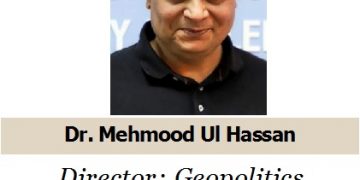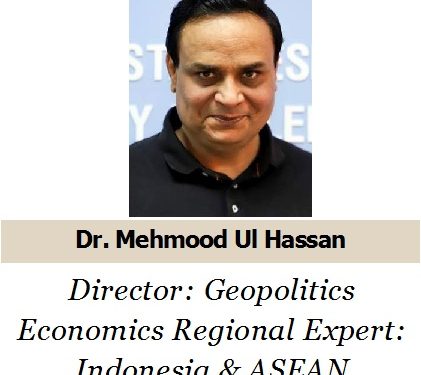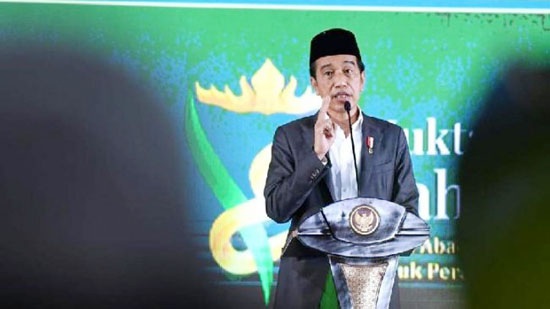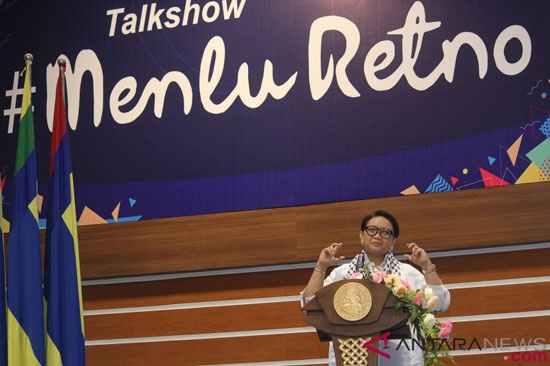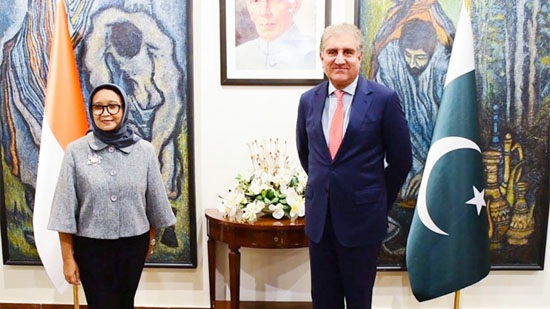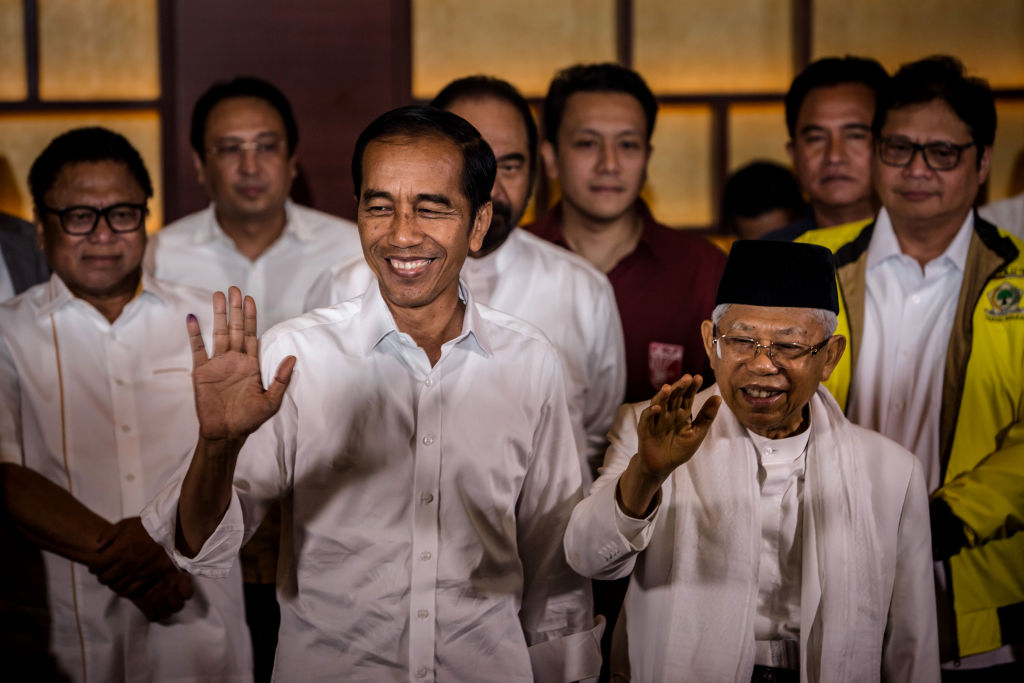Role of women has been changing in Indonesia since its inception. Now it has many success role models to follow. They are successful entrepreneurs, effective/powerful politicians, financial gurus, marketing experts, prominent strategists, renowned policy makers, heads of NOGs, respected teachers and passionate technicians/workers in the country.
However, its corporate sector has taken the lead which is commendable. Women have been sign of submission, sacrifice, services and last but not least sincerity in multiethnic land of Indonesia for centuries. Precisely, the journey of women empowerment had to pass through from numerous personal taboos, historic folks myths, socio-economic barriers, and political sensitivities in the past. But thanks to diversified but integrated holistic policies of the incumbent government ratios of women empowerment are on the rise which has socio-economic and political multiplier effect in the country.
However, now women are making change for themselves from the ground up and defining the future of gender equality in the country. In this regard, most recently, while delivering a keynote speech in the G20 kick-off meeting on women’s empowerment, President Joko Widodo has identified three main conditions for the further strengthening of the empowerment of Indonesian women.
He pinpointed equalization of digital infrastructure; digital literacy and entrepreneurial skills training for women in remote areas of the country must for achieving the desired goals of women empowerment in Indonesia.
He termed equalization of digital infrastructure necessary because to support women in many productive activities. Indonesian president Jokowi suggested including women in the digital industry to access financial services. He was of the opinion that the development of the digital economy could turn out to be more massive, entering into all aspects of people’s lives in the future for which the government must accelerate the growth of the digital economy.
Moreover, President Joko Widodo made gender equality a cornerstone of his agenda during his presidency and is currently a global ambassador for the #HeForShe campaign making it his mission to fill his cabinet with strong, smart and capable women. He has also spoken about amending the child marriage laws. However, lots of policies have not yet been implemented to have an impact on the legislative council and in provincial administrations around the country where there are currently very low levels of women participation. Thus concerted efforts are the need of the hour.
He explained that digital infrastructure would facilitate women’s access to financial services in the digital economy. It will further encourage Indonesian women to master digital literacy, thus become more beneficial and productive. In this context, the government of Indonesia should improve and increase the training and development of women so that Indonesian women can improve their qualitative of lives.
Indonesia has many strong women in leadership positions, and the country is on the right track as it continues to acknowledge and accept the crucial roles that women play in developing the nation so far. Looking ahead, closing gender a gap further is not only the right thing to do by women it is a good policy to boost Indonesia’s economic recovery.
Unfortunately, women in Indonesia still face various challenges, such as discrimination, stigmatization, marginalization, subordination and even violence. Therefore, access, participation, control and benefits need to be expanded so that women in the business world can continue to contribute to development and can be part of the solution to the various challenges faced.
Various good practices regarding women’s leadership and various breakthrough programs carried out by the business world in empowering women need to be promoted so that women’s roles and contributions can be recognized in the leadership process at various levels.
Indonesia has made significant improvements in women’s economic empowerment; with women making up 50 percent of all university graduates, 46 percent of senior management roles, and almost one quarter of small to medium enterprise owners. Indonesia has progressive laws about maternal rights and the government has ratified The Convention on the Elimination of all Forms of Discrimination against Women.
It is obvious that sustainable development will only be achieved if its benefits accrue equally to both women and men and women’s rights will only become a reality if they are part of broader efforts to protect the planet and ensure that all people can live with dignity and respect.
According to UN Indonesia intents on more women leaders, fewer maternal deaths and eliminating gender-based violence adding that the country “seeks to eliminate all forms of violence against women and girls by informing all stakeholders in the family and community, including men, about combatting this heinous crime”.
Further women empowerment may be vital for restarting economic growth, generation of new jobs and poverty eradication in a post-pandemic period pays attention to equality in all sectors and at all levels of leadership in order to make the economic recovery faster and stronger for everyone.
Most recently Indonesian government has started a noble initiative “Bell the Ring” which pursues the goals of women’s empowerment, thorough collaboration. It introduces a multi stakeholder approach between the public sector, civil society and business sector.
According to the United Nations, Indonesia does not enjoy good position in the global Gender Inequality Index, but our many research studies confirm that grassroots change is in motion. In this connection, women’s civil society organisations are doing the painstaking work of chipping away at the social norms and structural barriers to gender equality and, as a result, the landscape is slowly but surely changing.
Indonesia’s cultural and religious diversity as well as the fact that the archipelago comprises tens of thousands of villages spread across thousands of islands poses complex challenges when it comes to women’s rights and gender equality.
In many rural and semi-urban areas, poverty levels are high and education levels are low, and entrenched cultural beliefs keep women in the home and out of public life.
However, the Female-Headed Household Empowerment Program, or (PEKKA), supports women to secure social protection programs in health and education through accessing identity cards. Migrant Care, works to protect female migrant workers from exploitation. Islamic women’s organisation “Aisyiyah” has improved access to and cultural acceptance of reproductive health services like pap smears and breast cancer screening. The BaKTI works to reduce violence against women. The KAPAL Perempuan has established informal women’s schools in 25 villages across Indonesia. With newly gained skills such as reading, writing and financial literacy, women are often able to establish small businesses and achieve economic independence.
To conclude, the government of Indonesia should jointly work of the development of gender equality and women’s empowerment because it still experiences the existence of gender gaps in various fields and along with the continuing occurrence of violence against women and vulnerable groups.
The McKinsey Global Institute (MGI) published a report that Indonesia can increase its gross domestic product by 9 percent or $135 billion within the next seven years by achieving gender equality in the workplace. In Indonesia, gender equality is explicitly guaranteed by the Constitution and has been further promoted through the ratification of the international Convention on the Elimination of All Forms of Discrimination against Women (CEDAW).
Furthermore, there is a series of “fundamental” problems in development process mainly gender equality and women’s empowerment, in education, health, employment, violence against women and vulnerable groups, and discrimination and violations of the rights of vulnerable groups which must be rectified through holistic approach.
I suggest that gender equality and justice in development in the RPJMN IV 2020-2025 needs to be harmonized with the development priorities in the RPJMN IV mandated in Law No. 17 of 2017 which is based on the implementation, achievement, and sustainability of RPJMN III, namely aimed at realizing an independent, developed, fair and prosperous Indonesian society through accelerating development in various fields by emphasizing the establishment of a robust economic structure based on competitive advantage in various regions which is supported by quality and competitive human resources.
National policy directions for priority areas namely education, health, employment, violence against women and vulnerable groups, discrimination and violations of the rights of vulnerable groups, for strategic fields namely law , politics, economics, infrastructure, natural resources and the environment, and elemental fields, namely sociocultural and institutional as well as institutionalizing PUG must be systematically streamlined for achieving the desired goals of greater women empowerment in Indonesia.
Indonesia features two of the biggest names in policymaking. Indonesian Foreign Minister Retno Lestari Priansari Marsudi, Finance Minister Sri Mulyani Indrawati a former World Bank managing director both are Asia’s most powerful women which clearly indicates increasing women empowerment in the politics especially in the national policymaking which is commendable.
Most recently held OIC meeting Indonesian Foreign Minister Retno Lestari Priansari Marsudi called on Foreign Minister Shah Mahmood Qureshi in Islamabad. During the meeting, views were exchanged on bilateral relations, regional situation, and matters of mutual interest. The Indonesian Foreign Minister thanked Shah Mahmood Qureshi for according warm hospitality.
During her stay in Pakistan the Indonesian Foreign Minister Retno Lestari Priansari Marsudi met with the women Parliamentarians of Pakistan. In the meeting, views were exchanged on women’s empowerment and promotion of equal opportunities, especially in the context of the democratic and Islamic character of both Indonesia and Pakistan.
During the said meeting, the great scope for cooperation between the women MPs from both sides to share best legislative practices, enhance mutual contacts, and further parliamentary engagement in the areas of health, education, and sports, among others was thoroughly discussed.
The participants expressed solidarity with the people of Afghanistan, in particular women and girls, and discussed ways to reach out to them in these difficult times. In this regard, they agreed to explore the formation of a joint forum of women parliamentarians from Pakistan and Indonesia.
Indonesia values gender diversity, equal employer and economic equality. In this connection, Indonesian corporate sector is the prime example of increasing women empowerment in the country. It has many role models. At Bank Indonesia, senior deputy governor Destry Damayanti is overseeing one of the globe’s most tantalizing experiments of the Covid-19 era: a central bank buying debt directly from the national government. Dina Sagita Middin Chief Financial Officer of Indonesian Standard Bank and Franziska Wagiu member board of director Citi Indonesia bank, head of markets and security confirm that Indonesia is on the right path of greater women empowerment. Corporate sector of Indonesia is leveling the playing field and wisely reduces the gender gaps.
- Latest
- Trending
